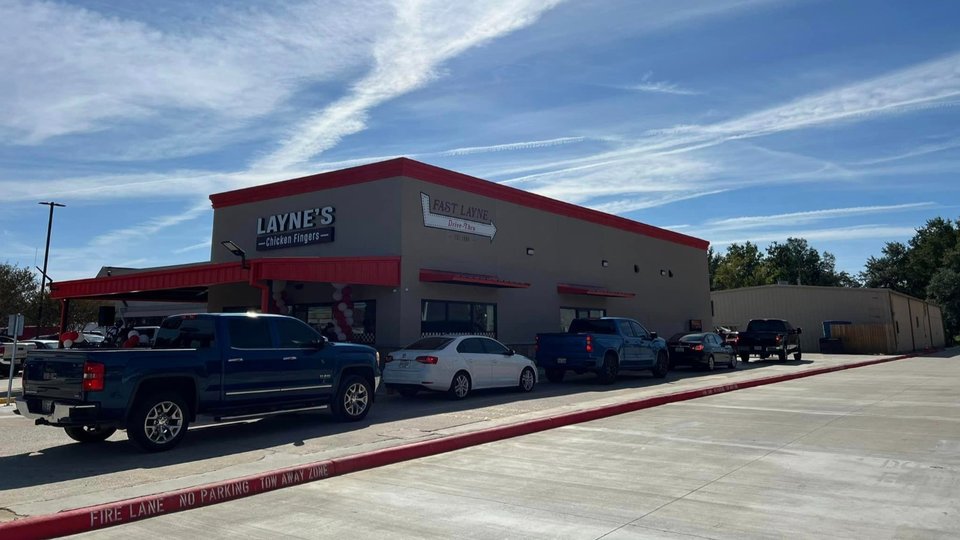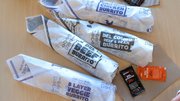Operations
Layne's Chicken Fingers finds success with various models
Layne's has seen consistent store sales with various real estate models. Eric Reed, the brand's chief development officer, explores how different models can help the brand find success with franchisees.

July 19, 2024 by Mandy Wolf Detwiler — Editor, Networld Media Group
College Station, Texas-based Layne's Chicken Fingers will have 25 locations open by the end of 2024. The chicken-finger chain has another 20 to 25 locations planned for 2025. And yes, it's franchised outside of Texas already with locations in Pennsylvania, West Virginia, Arkansas, Georgia, Virginia, Florida, Wyoming and Tennessee.
Eric Reed, Layne's Chicken Fingers' CDO, said the brand sets itself apart from other chicken brands in the QSR market by committing to quality service and products, creating a distinct flavor profile and at an excellent value and through its simplicity of operation.
 |
Eric Reed, Layne's Chicken Fingers chief development officer. Photo: Layne's Chicken Fingers |
"These elements combine to create an exceptional dining experience that keeps our customers coming back," Reed said in an email interview with QSRweb.com. We talked to Reed about how the brand determines the type of real estate to scout in particulat markets and why Layne's has developed various prototypes, including freestanding restaurants, shopping center locations with drive-thrus, dine-in only shops and drive-thru locations.
Q: Layne's has seen consistent store sales with various real estate models. Can you elaborate on how adapting restaurant formats (freestanding, shopping center, drive-thru only) has been a key driver of this success?
Reed: Adapting restaurant formats has been crucial to Layne's success by allowing us to maximize the potential of various trade areas. When we identify a promising location, we remain flexible in choosing the most suitable real estate model — whether it's a freestanding building, a spot in a shopping center or a drive-thru only format. This adaptability enables us to efficiently serve different market demands and customer preferences, ensuring consistent sales and growth across diverse locations.
Q: What factors determine which real estate type Layne's scouts for in a specific market? Are there specific demographics or traffic patterns you target?
Reed: When determining which real estate type to scout in a specific market, we aim to match or surpass the standards set by our QSR peers. We focus on well-established and high-growth markets, looking at key factors such as demographics and traffic patterns. Our goal is to position Layne's in areas with strong customer demand and significant foot or vehicle traffic, ensuring optimal visibility and accessibility.
Q: Why has Layne's developed a variety of restaurant prototypes? Is it based on market demand, operational efficiency, or other factors?
Reed: Layne's has developed a variety of restaurant prototypes primarily to enhance operational efficiency and leverage our flexibility. This approach allows us to support our franchisees in maximizing their profits by adapting to different market demands and operational environments.
Q: Layne's drive-thru only locations achieve impressive sales volumes ($2 million). How has the company optimized these locations for efficiency and customer experience?
Reed: Layne's drive-thru only locations achieve impressive sales volumes by optimizing both kitchen operations and procedural efficiency. We've streamlined our kitchen layouts and refined our procedures to ensure fast, high-quality service. This focus on efficiency allows us to deliver an exceptional customer experience, even in a drive-thru setting.
Q: Looking ahead, does Layne's anticipate a shift in the dominant restaurant format (freestanding vs. drive-thru)? Are there any new prototypes in development?
Reed: Looking ahead, Layne's plans to continue maximizing both drive-thru and dining room formats with our current prototypes. We aim to optimize each format based on market demand and location, ensuring we provide the best possible customer experience. While there are no new prototypes in development at the moment, our focus remains on enhancing and refining our existing models.
Q: What are some of the biggest challenges Layne's faces with its diverse real estate portfolio? How does the company overcome these challenges to maintain consistent sales performance?
Reed: One of the biggest challenges Layne's faces with its diverse real estate portfolio is finding affordable, high-quality sites. We overcome this by diligently searching markets and remaining flexible and creative in our real estate choices. This approach allows us to secure optimal locations that support consistent sales performance.
Q: Beyond sales volume, are there any other key metrics Layne's uses to measure the success of its different real estate models?
Reed: Beyond sales volume, customer feedback, measured through our Ovation system, is the key metric we use to gauge the success of our different real estate models. By prioritizing customer satisfaction and ensuring we take care of our customers, we believe all other aspects of success naturally follow.
Q: Why focus on drive-thrus instead of more traditional dining rooms?
Reed: While our focus is to incorporate both drive-thru and traditional dining rooms in all our locations, we prioritize the drive-thru when a site can't accommodate both. This ensures we can efficiently serve our customers, meeting their preferences for convenience and accessibility while still offering a welcoming dine-in experience where feasible.
Q: If you had a piece of advice for someone thinking about adding drive-thrus to their business, what would you tell them?
Reed: If you're considering adding drive-thrus to your business, my advice would be to thoroughly research and plan for it. Doing your homework upfront will set you up for success and allow you to enjoy the rewards of efficiently serving your customers through this convenient option.
About Mandy Wolf Detwiler
Mandy Wolf Detwiler is the managing editor at Networld Media Group and the site editor for PizzaMarketplace.com and QSRweb.com. She has more than 20 years’ experience covering food, people and places.
An award-winning print journalist, Mandy brings more than 20 years’ experience to Networld Media Group. She has spent nearly two decades covering the pizza industry, from independent pizzerias to multi-unit chains and every size business in between. Mandy has been featured on the Food Network and has won numerous awards for her coverage of the restaurant industry. She has an insatiable appetite for learning, and can tell you where to find the best slices in the country after spending 15 years traveling and eating pizza for a living.
 ChatGPT
ChatGPT Grok
Grok Perplexity
Perplexity Claude
Claude








